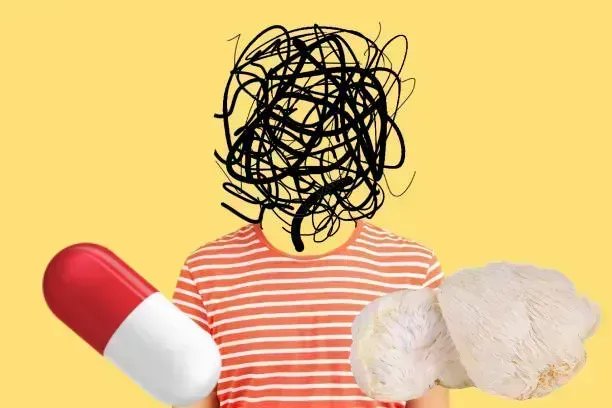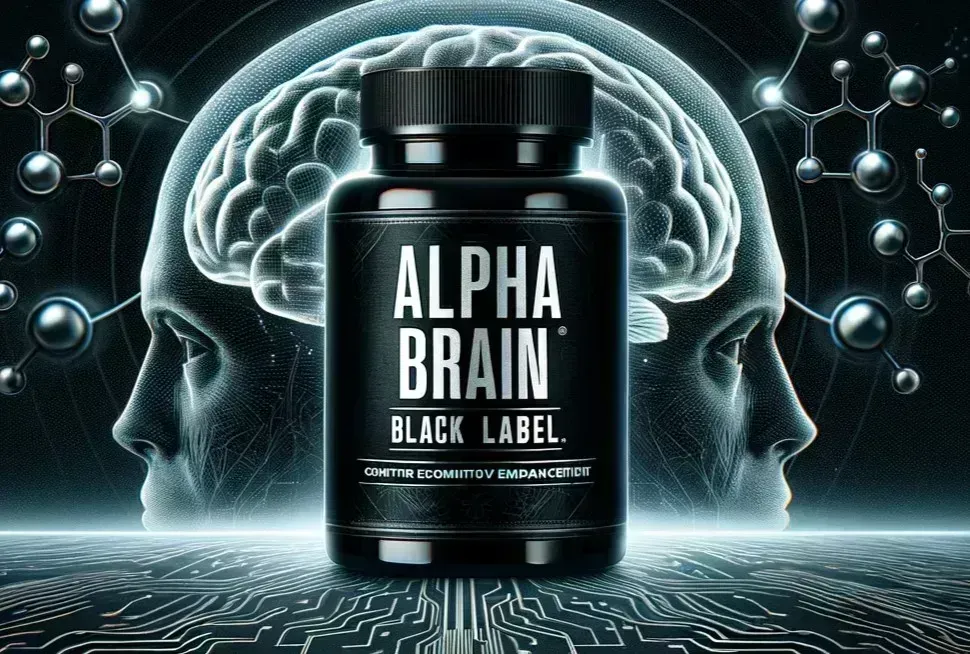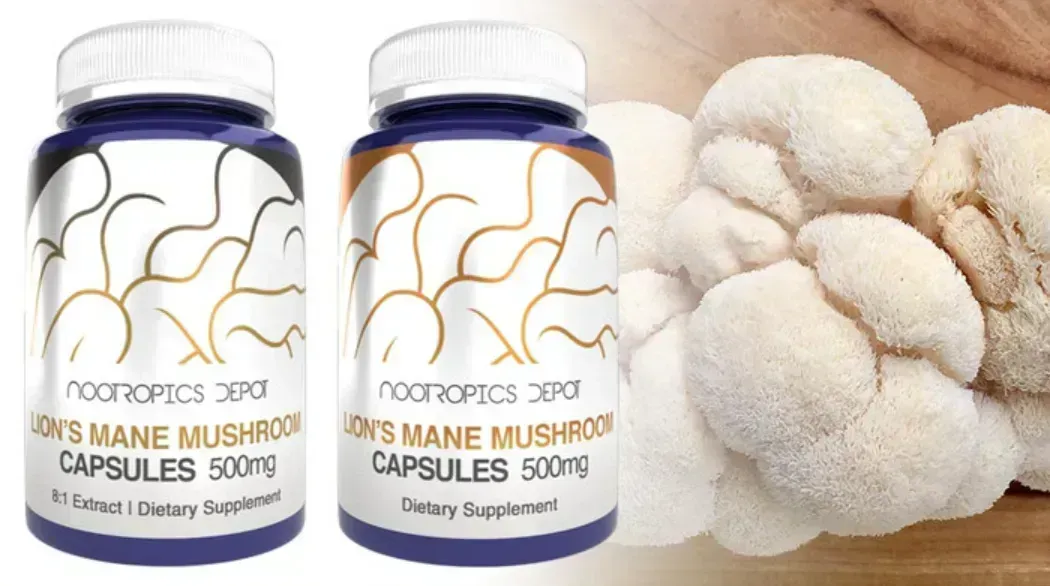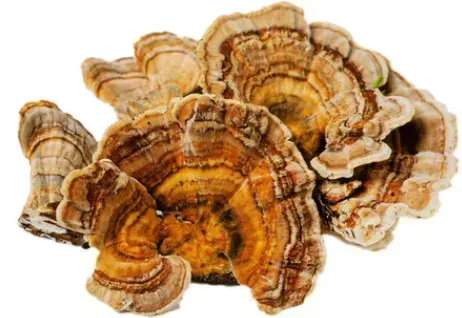I’m sure many of us are aware of ADHD (Attention Deficit Hyperactivity Disorder), a complex neurodevelopmental disorder affecting individuals of all ages. Characterized by symptoms of inattention, hyperactivity, and impulsivity, ADHD can significantly impact academic performance, relationships, and overall quality of life.
Quick Facts:
“An estimated 7 million (11.4%) U.S. children aged 3–17 years have been diagnosed with ADHD, according to a national survey of parents using data from 2022.”
“Estimates for receiving any ADHD treatment among children with current ADHD vary from 58% to 92% across states.”
With these numbers only increasing by the year, people have started to look at any possible alternative there may be to treat ADHD like natural supplements like Lion’s Mane for example are gaining traction for their potential cognitive benefits. While it’s important to note that this should not replace traditional ADHD treatment, since the research done on Lion’s Mane is still ongoing.
So Fungi Review is going to explore the three widely accepted methods for managing ADHD: behavioral therapy, medication, and educational or workplace accommodations. It also delves into the scientific evidence behind Lion’s Mane, real-life experiences, potential risks, and how to use this supplement safely.
What Is ADHD?
ADHD manifests in various ways, often presenting with three primary symptom categories:
- Inattention: Difficulty focusing, forgetfulness, and making careless mistakes.
- Hyperactivity: Restlessness, excessive movement, and a constant feeling of being "on the go."
- Impulsivity: Hasty decision-making, interrupting others, and difficulty waiting.
The root causes of ADHD are multifaceted, involving genetic predispositions, neurobiological factors, and environmental influences. Approximately 8.4% of children and 2.5% of adults worldwide are diagnosed with ADHD, highlighting the importance of effective management strategies.
The Importance Of Treating ADHD
Treating ADHD is essential because it significantly improves quality of life by reducing the challenges associated with inattention, hyperactivity, and impulsivity. Effective treatment helps individuals perform better academically and professionally by enhancing focus and organizational skills. It also supports emotional regulation, reducing mood swings, frustration, and stress. By managing symptoms, treatment lowers the risk of co-occurring conditions like anxiety, depression, and substance abuse. It fosters healthier relationships by improving communication and reducing impulsive behaviors. Additionally, treatment enhances safety by minimizing risky behaviors often linked to ADHD, such as reckless driving. Addressing ADHD early promotes long-term health, well-being, and self-esteem by enabling individuals to achieve goals and build confidence. Ultimately, treating ADHD empowers people to live independent, balanced, and fulfilling lives.
1. Behavioral Therapy
Behavioral therapy focuses on equipping individuals with skills to better manage ADHD symptoms. It’s often the first-line treatment for children and can be effective for adults when combined with other approaches.
Cognitive Behavioral Therapy (CBT)
CBT is a structured, evidence-based approach that helps individuals recognize and change unhelpful thought patterns and behaviors.
- Benefits for ADHD:
- Improves organizational skills.
- Reduces impulsive decision-making.
- Enhances emotional regulation through mindfulness and coping techniques.
CBT is particularly effective for addressing procrastination, improving time management, and fostering a sense of control over ADHD symptoms.
Behavioral Interventions
Behavioral therapy also includes practical interventions that shape positive habits:
- Reward Systems: Encourage goal-oriented behaviors through incentives.
- Task Breakdown: Simplify overwhelming tasks into smaller, actionable steps.
- Environment Modifications: Create distraction-free zones for work or study.
Parents, teachers, and partners often play key roles in implementing these strategies, making behavioral therapy a collaborative process.
2. Medication
Medication remains a cornerstone of ADHD treatment and is often used in combination with behavioral therapy. ADHD medications fall into two main categories:
Stimulant Medications
Stimulants are the most widely prescribed and effective medications for ADHD.
- How They Work: Stimulants increase dopamine and norepinephrine levels in the brain, enhancing focus and impulse control.
- Examples:
- Methylphenidate-based: Ritalin, Concerta.
- Amphetamine-based: Adderall, Vyvanse.
Non-Stimulant Medications
Non-stimulants are alternatives for individuals who experience side effects or do not respond well to stimulants.
- Examples:
- Atomoxetine (Strattera): Specifically designed for ADHD.
- Bupropion: An antidepressant that can also alleviate ADHD symptoms.
Both types of medication require careful monitoring by healthcare professionals to ensure effectiveness and minimize side effects.
3. Educational and Workplace Accommodations
Adjusting the environment to suit the needs of individuals with ADHD can significantly enhance their ability to thrive in school or work.
Educational Accommodations
For students with ADHD, schools can provide tailored support to mitigate challenges:
- Extended time on exams.
- Preferential seating to reduce distractions.
- Access to assistive technology for organization and focus.
Workplace Accommodations
In professional settings, employers can implement adjustments to support employees with ADHD:
- Flexible Schedules: Accommodate energy levels and focus patterns.
- Ergonomic Workstations: Create comfortable spaces that minimize distractions.
- Structured Communication Channels: Establish clear expectations and feedback mechanisms.
These accommodations promote productivity and reduce stress, enabling individuals with ADHD to succeed in their respective environments.
What Is Lion’s Mane?
Lion’s Mane (Hericium erinaceus) is a unique mushroom known for its shaggy, white appearance and potential health benefits. Traditionally used in Chinese and Japanese medicine, it has gained popularity for its ability to support cognitive function and nervous system health. Research suggests that Lion’s Mane stimulates Nerve Growth Factor (NGF), which may enhance memory, focus, and neuron repair. It is often consumed as a dietary supplement in capsules, powders, or teas, as well as in mushroom coffee blends. Some studies also highlight its mood-enhancing and anti-inflammatory properties, making it a versatile option for overall wellness.
Does Lion’s Mane Work for ADHD?
Scientific Evidence
Lion’s Mane shows a lot of promise in the medical field with signs showing it can improve mood and cognitive function however studies have also shown null and limited negative effects. The tests done on Lion’s Mane so far have been very small and limited, thus showing the need for immediate larger testing to understand the beneficial effects of the mushroom so far, and the suggested dosages in order for it to be effective. Finding real studies and tests on ADHD and Lion’s Mane are even more limited. With only personal experiences to go off of and not concrete medical evidence. The only reason why this is a discussion is that Lion’s Mane has shown signs that it may improve cognitive functions, such as memory, focus, and attention.
- Key Studies:
- A 2024 study published in Science Direct highlighted the potential of Lion’s Mane in improving cognitive function and reducing symptoms of mild cognitive impairment, however they noted that the small sample size, gender disparity and other factors may have disrupted this test.
- Another study published in PubMed (2023) found that Lion’s Mane improved cognition and stress, but this study also had a small testing size,
Although promising, more human studies targeting ADHD are needed to establish its efficacy.
How to Use Lion’s Mane for ADHD
With no suggestion provided by medical professionals on treating ADHD with Lion’s Mane, we will then have to go off with other people's experiences.
- Dosage: Some people follow the suggested dosage of the product they are using which typically range between 500-1500 mg daily. Start with a low dose and gradually increase based on your body’s response.
- Forms Available: Capsules, powders, or tinctures. Powders can be mixed into smoothies, coffee, or tea.
- Timing: Many users report taking it in the morning to support focus throughout the day.
For product recommendations be sure to check out our reviews
Potential Side Effects and Risks
Lion’s Mane is generally well-tolerated but may cause mild side effects, including:
- Stomach discomfort or nausea.
- Headaches reported at higher dosages.
- Allergic reactions (e.g., skin rashes or difficulty breathing) in rare cases.
Some people have found that daily use of Lion’s Mane worsened their anxiety and depression, which is probably a result of underlying issues, due to the Lion’s mane triggering neurogenesis in the brain.
Individuals with mushroom allergies or those on medication should consult a healthcare provider before use.
Real-Life Experiences
- Positive Outcomes: Many users have reported enhanced focus and reduced mental fatigue after incorporating Lion’s Mane into their daily routines.
- Challenges: Some users did not notice immediate benefits and emphasized the need for consistent use over weeks or months.
- Not a Replacement: Most agree that Lion’s Mane works best as a supplement to, rather than a replacement for, traditional ADHD treatments.
A Multimodal Approach Is Most Effective
Experts recommend a multimodal approach to ADHD management. This combines:
- Medication for symptom relief.
- Behavioral therapy to build coping strategies.
- Environmental accommodations to reduce stressors.
By addressing ADHD from multiple angles, individuals can better navigate challenges and improve their quality of life.
FAQ Section
1. Can Lion’s Mane cure ADHD?
No, Lion’s Mane is not a cure for ADHD. It may support cognitive function, but it should complement, not replace, traditional treatments like medication and therapy.
2. How long does it take to see results?
Effects can vary. Some individuals notice improvements in focus within weeks, while others may require months of consistent use.
3. Is Lion’s Mane safe for children with ADHD?
Safety for children is not well-established. Consult a pediatrician before giving any supplements to children.
4. Can I use Lion’s Mane alongside ADHD medications?
Lion’s Mane is generally safe to use with medications, but always consult a healthcare provider to avoid potential interactions.
Final Thoughts: Is Lion's Mane Good For ADHD?
At this current time there is no sure alternative in treating ADHD. ADHD is a lifelong condition, but with the right combination of treatments, individuals can lead fulfilling and productive lives. Fungi Review believes in Lion's mane and is looking forward to seeing future studies, but as of right now it holds a promising avenue to support brain health and focus. However, it should be used as part of a comprehensive ADHD management plan, including therapy, medication, and accommodations.
Have you tried Lion’s Mane for ADHD? Share your experience in the comments below!
References
27 July 2023 By Dawn Connelly. (2023, July 27). Special report: Charting the rise in ADHD prescribing. The Pharmaceutical Journal. https://pharmaceutical-journal.com/article/feature/special-report-charting-the-rise-in-adhd-prescribing
Centers for Disease Control and Prevention. (n.d.-a). Data and statistics on ADHD. Centers for Disease Control and Prevention. https://www.cdc.gov/adhd/data/index.html#cdc_data_surveillance_section_3-treatment-of-adhd
Centers for Disease Control and Prevention. (n.d.-b). Data and statistics on ADHD. Centers for Disease Control and Prevention. https://www.cdc.gov/adhd/data/index.html
Lee, S.-M., Cheong, H.-K., Oh, I.-H., & Hong, M. (2021, October 28). Nationwide rate of adult ADHD diagnosis and pharmacotherapy from 2015 to 2018. International journal of environmental research and public health. https://pmc.ncbi.nlm.nih.gov/articles/PMC8582649/
MediLexicon International. (n.d.). Lion’s mane mushrooms: Benefits and side effects. Medical News Today. https://www.medicalnewstoday.com/articles/323400#takeaway
What is ADHD?. Psychiatry.org - What is ADHD? (n.d.). https://www.psychiatry.org/patients-families/adhd/what-is-adhd
What is neurogenesis?. Queensland Brain Institute - University of Queensland. (2021, April 23). https://qbi.uq.edu.au/brain-basics/brain-physiology/what-neurogenesis#:~:text=Neurogenesis%20is%20the%20process%20by,birth%20and%20throughout%20our%20lifespan.





